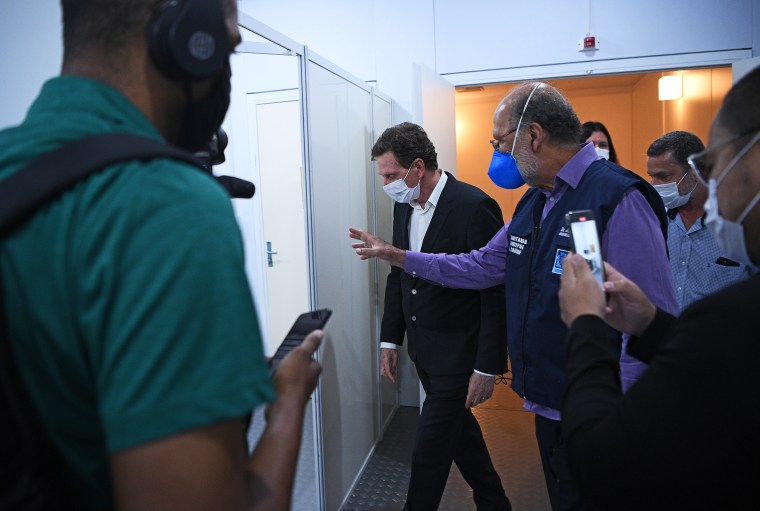New York, September 1, 2020 – Brazilian national TV channel Globo yesterday aired an investigative report that found that the office of Rio de Janeiro Mayor Marcelo Crivella used public funds to pay groups of municipal employees to monitor and obstruct journalists at local hospitals and block news crews from covering the COVID-19 pandemic.
“It is outrageous that the office of Rio de Janeiro Mayor Crivella would deploy municipal employees to harass journalists and blatantly suppress access to critical public health information in the midst of a deadly pandemic,” said CPJ Central and South Americas Program Coordinator Natalie Southwick. “This open attempt at censorship endangers not just the health of Brazil’s people, but undermines the fundamental democratic right of the press to report freely. Rio authorities must immediately end this appalling initiative, allow journalists to report without interference, and hold to account those who approved such programs.”
According to the Globo investigation, the municipal employees regularly hassled journalists conducting interviews near the hospitals, using tactics including recording the journalists with their own phones, interrupting the reporters or interviewees, and shouting over them until the reporters were forced to end their interviews.
In a statement to Globo, the mayor’s office said the program was a way to combat “false information” that could endanger public health. A representative of the mayor’s communications office emailed CPJ a statement accusing Globo of trying to “manipulate news at the doors of hospitals” and pressure the city government into allocating it more advertising money, and saying the presence of the city employees outside hospitals was necessary to “counter the broadcaster’s lies” that allegedly put people’s lives at risk.
